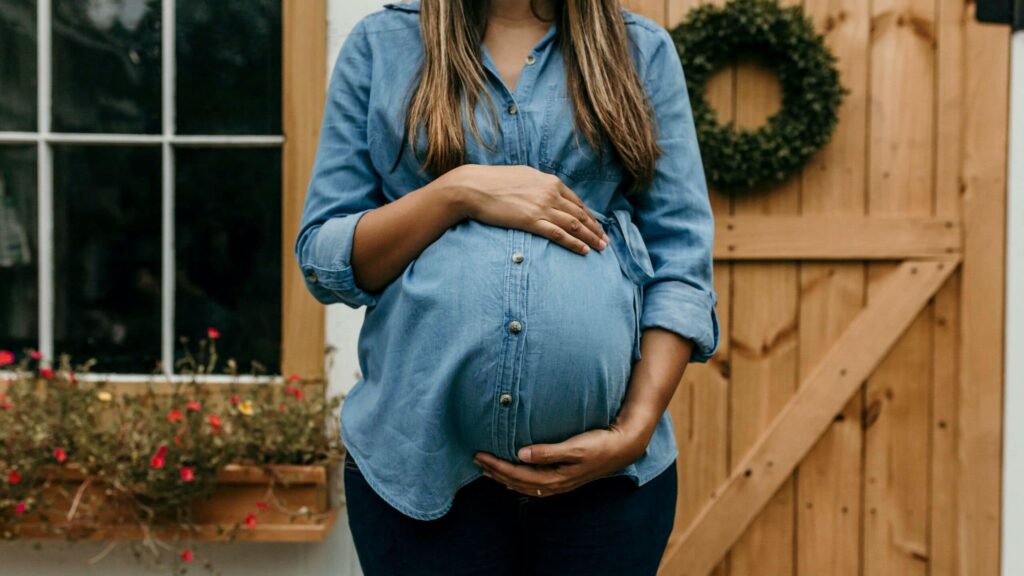How to Prepare Your Body for Pregnancy After 35
This article provides a comprehensive guide on preparing the body for pregnancy after 35. It explores biological changes, potential risks, and essential steps to enhance fertility and overall health. Covering topics such as balanced nutrition, exercise, stress management, and medical guidance, it emphasizes a holistic approach to conception. With expert insights and practical tips, the article helps women navigate this journey with confidence and optimal well-being.

Understanding Pregnancy After 35
Many women are waiting longer to have children. While pregnancy after 35 is common, it, however, comes with unique challenges. Therefore, understanding how your body changes can help in making informed choices.
Biological Considerations
Fertility naturally declines with age. Since the number and quality of eggs decrease, conception becomes harder. Moreover, hormonal fluctuations may also affect ovulation. Additionally, the risk of conditions like gestational diabetes and hypertension increases.
Potential Risks and Challenges
Older mothers, on the other hand, may face complications such as preterm labor and chromosomal abnormalities. Notably, miscarriage rates are slightly higher, and the recovery period after birth can be longer. However, despite these risks, many women in their late 30s and 40s have smooth pregnancies with proper preparation.
Steps to Enhance Fertility and Health
Balanced Nutrition
A nutrient-rich diet plays a crucial role in preparing your body for pregnancy. Since whole foods provide essential vitamins and minerals, they support reproductive health.
Key Nutrients
- Folic Acid: Helps prevent neural tube defects.
- Iron: Supports increased blood volume.
- Calcium: Strengthens bones for both mother and baby.
- Omega-3 Fatty Acids: Enhances brain development and hormone balance.
By incorporating leafy greens, lean proteins, nuts, and whole grains, you ensure optimal nourishment.
Maintaining a Healthy Weight
Since excess weight can lead to complications like gestational diabetes and high blood pressure, maintaining a balanced diet is crucial. On the other hand, underweight women may experience irregular ovulation. Therefore, a combination of a balanced diet and regular exercise helps achieve a healthy weight.
Regular Physical Activity
Exercise not only supports cardiovascular health but also boosts mood and enhances fertility. Moderate workouts like walking, yoga, and swimming improve circulation and prepare the body for pregnancy.
Best Exercises for Pre-Pregnancy
- Yoga: Reduces stress and increases flexibility.
- Strength Training: Supports muscle tone and endurance.
- Cardio Workouts: Improves heart health and stamina.
Since consistency is key, aim for at least 30 minutes of moderate exercise most days.
Optimizing Reproductive Health
Tracking Ovulation
Understanding your cycle significantly increases the chances of conception. Therefore, using apps and basal body temperature tracking can help pinpoint the most fertile days.
Consulting a Fertility Specialist
If conception takes longer than six months, then you should consider seeing a specialist. Since tests can assess egg quality, hormone levels, and potential reproductive issues, they provide valuable insights.
Addressing Underlying Health Conditions
Chronic conditions like diabetes, thyroid disorders, and hypertension can impact fertility. Therefore, managing these conditions before pregnancy ensures a healthier journey.
The Role of Lifestyle Choices
Managing Stress
High stress levels can, in fact, disrupt hormonal balance. Therefore, mindfulness techniques, meditation, and relaxation exercises promote emotional well-being.
Prioritizing Sleep
Since quality sleep supports hormonal regulation and overall health, establishing a consistent sleep routine helps maintain balance.
Avoiding Harmful Substances
- Alcohol and Smoking: Reduce fertility and increase miscarriage risk.
- Caffeine: Limit intake to under 200 mg per day.
- Toxic Chemicals: Minimize exposure to household and environmental toxins.
Seeking Medical Guidance
Preconception Checkups
Since a medical review ensures readiness for pregnancy, it is essential to discuss vaccinations, medications, and potential risk factors with your doctor.
Genetic Screening
Because certain genetic conditions become more common with age, screening tests provide insights into potential risks.
Supplements and Prenatal Vitamins
Since a prenatal vitamin with folic acid, iron, and DHA supports early fetal development, consulting your healthcare provider for recommendations is essential.
Emotional Preparation
Building a Support System
A strong support network, therefore, eases the emotional journey. Family, friends, and support groups offer encouragement and guidance.
Managing Expectations
Pregnancy at any age, undoubtedly, comes with uncertainties. However, being mentally prepared helps in navigating challenges with confidence.
Strengthening Your Relationship
Since open communication with your partner fosters a supportive environment, discussing expectations, fears, and plans ensures a smooth transition into parenthood.
Let us make pregnancy an occasion when we appreciate our female bodies.
Ina May Gaskin
Conclusion
Preparing for pregnancy after 35, therefore, requires a holistic approach. Proper nutrition, exercise, and lifestyle adjustments optimize fertility and health. Furthermore, seeking medical guidance and emotional preparation further enhance the journey. With mindful planning, many women experience healthy and fulfilling pregnancies.